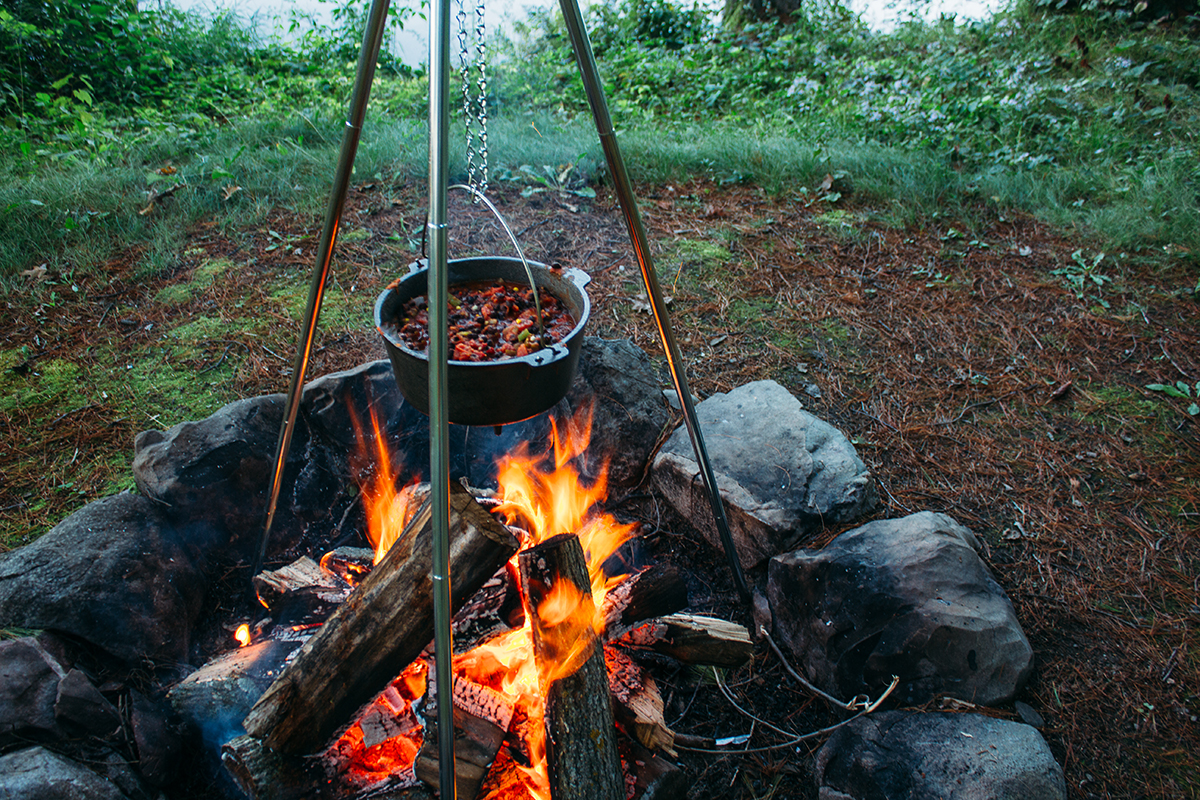 I practiced law for 10 years, which, according to one of my favorite gag lines, “was about five years too many.” But law was by no means my only career mistake. And today, shortly after having cleaned out my office in preparation for retirement, is not a bad time to reflect on a life that could serve as an illustration of Malcolm Muggeridge’s autobiography, Chronicles of Wasted Time.
I practiced law for 10 years, which, according to one of my favorite gag lines, “was about five years too many.” But law was by no means my only career mistake. And today, shortly after having cleaned out my office in preparation for retirement, is not a bad time to reflect on a life that could serve as an illustration of Malcolm Muggeridge’s autobiography, Chronicles of Wasted Time.
But, in such a target rich environment, where to begin?
An image that easily comes to mind is in the upper reaches of Gore Creek, beneath Red Buffalo Pass and above Vail in about the spring of 1975. Alone with my backpacking gear, I had parked my ’69 VW Bug at the foot of Vail Pass when it was still a two lane road, and hiked several steep miles up the trail to timber line. I pitched my yellow pup tent on a huge ledge, just as the sun was setting down the valley to the west.
As I sat there admiring the view, a small herd of deer cautiously emerged from the dark shadows of the forest to graze in the lush meadow beneath me. Then, just as suddenly as they had appeared, they vanished; something had spooked them.
Not too far away, a faint column of smoke rose from another campsite. On my way up, I had talked briefly with the man, about my age, who was camped there.
“Mind if I sit down for a bit?”
“Go ahead,” he replied, “make yourself comfortable.”
I lowered my pack, found a smooth spot on the log on the opposite side of the fire from him, and took out my water bottle. The grass around the rock fire ring was gone, beaten down to ash smudged dirt. Pinto beans seethed in a soot encrusted pot over the flames; I didn’t see anything else on the menu for dinner.
Assuming that he was in need of my back packing expertise, I said, “It’s going to take forever for those beans to get cooked at this altitude.”
“That’s ok,” he replied, “I have time. I’ve been up here about a month.”
“Wow,” I replied, regretting I had said anything about the beans. “You’ve been up here since before the snow melted. What have you been doing?”
“I got home from Vietnam a while back. I wanted to get away and try to clear my head.”
Vietnam: that miserable war had just wound down to it’s miserable conclusion. But, unlike our current miserable wars, at least it did, finally, come to an end.
I don’t remember much else about that encounter. And it’s likely that I wouldn’t remember it at all if it hadn’t been a sort of echo of my own experience in the Gore Range that weekend: camping alone, seeking direction. Having just graduated from Colorado University with a European history degree, I wanted time alone to think and pray about what I was going to do with my life.
The decision facing me was a binary career choice: law school or seminary to study church history.
Why nothing beyond more schooling? For one, I had actually grown to enjoy the academic life since becoming a Christian two years earlier. Unlike my first years in college, I had taken school much more seriously, was learning how to write, and had excelled in most of my classes. One semester, for the first time, I got straight A’s (not counting the Russian History class that I had dropped when I got so hopelessly behind.)
But there was also an element of fear, fear of facing the real world. School was a safe, familiar environment.
A few weeks before, at a loud graduation party a friend who was getting an engineering degree asked me over the din of Led Zeppelin, “What are you going to do when we’re done?” When he heard that I was thinking of law school, he scornfully asked, “Why don’t you get a real job?” I had no ready answer. Maybe this time in the Gore Range would help.
I had submitted law school applications at CU and Denver University. And for the graduate program at Princeton seminary for church history.
With my checkered academic record, the Colorado University law school rejected me outright.
The Denver University law school was only willing to admit me to the night program. And, to make that achievement even more dubious, it was about then that DU was in financial hospice care; they were probably admitting anyone who could fog a mirror.
With the encouragement of a German History professor who took an enthusiastic liking to me, Robert Pois, I applied to Princeton Seminary. They rejected me, but I figured there were plenty of other places out there where you could study church history. True, I had only the vaguest idea of what I would do with such a degree: even I knew that the job prospects for teaching history at the college level were dismal. Nonetheless, I stubbornly clung to the notion that this was an option worth keeping open.
I was certain of one thing, however: I wasn’t going to seminary to become a minister. To this day, I can’t attempt much more than speculation about why I was so averse to that career path. It wouldn’t have been without precedent in my family. My grandfather Swalm was a Nazarene pastor. My uncle was a Nazarene Army chaplain in Korea; he was killed by friendly fire during the chaotic retreat down the peninsula in the first few days of that war.
Yet another war in a far distant part of the world which, even now, threatens to drag us into a conflict that should be none of our business.
But it wasn’t just family history that could have led me into the pulpit. Since shortly after becoming a Christian, I had been an enthusiastic participant at the Hillside Church of the Savior. It was a Jesus Freak church that met in the home of Gene Thomas.
Like Gene himself, the house was a hulking, physically unattractive structure overlooking Boulder Creek just north of the CU campus. On Sunday evenings, the place would be packed with students sitting on the floor and the overstuffed chairs strewn through the house.
Before church began, dinner would be served; one evening I made split pea soup for 100 in the Thomas’ cramped kitchen. The congregation, many of whom looked like the main reason they had come was for a free meal, formed a line around the dining room table and then found a place to sit. How much split pea got spilled on the carpets? Plenty, I expect. Very young families were just making an appearance at the church; infants on blankets, some discretely at their mothers’ breast. Gene’s wife, Gerri, put up with a lot.
Dinner over, Doug Bush led the rousing choruses on his ringing, 12 string guitar.
Gene, whose day job was operating his phone answering service, would then perch himself on a stool at the foot of the stairs that led to the second floor. From there, he made Jesus’ parables come alive. He was generous with his talents and resources, nurturing young leaders, allowing his home to be overrun each week.
I was baptized by one of Gene’s young assistants in the CU swimming pool; it wouldn’t have made sense for Gene to haul his bulk in and out of the pool. My parents came from Denver to see me get dunked.
For my last two years of college I shared a two story house with a few other guys from the church in Boulder’s “The Hill” neighborhood just west of the campus. To this day, it’s a good memory; one of my roommates became a brother in law.
Years later, after I had moved back to Denver, I learned that Gene had been forced to resign when it came out that he was a homosexual. When I heard it, my stomach was tied in a knot of disbelief. With a new Believer’s naivety, it was unimaginable. But, it would not be the last time my church life was touched so nearly by such a resignation. Gene died in 2012, survived by his wife of 63 years and a host of grandkids.
Somewhere along the way, I spoke with one of the guys at the church, Bobby Winters, about my career dilemma. Young, in his 20’s, bold in sharing the Gospel, he was nonetheless dying from kidney failure. His intense face had already taken on a sallow, yellow pallor; he died when his first kidney transplant failed and a second organ couldn’t be found. His advice was straightforward: “Have you prayed about it?” He asked the question with a calm certainty that my answer would be forthcoming.
“I have,” I replied. But I said it with what I hoped was a poker face that didn’t betray my uncertainty.
My problem with prayer is long standing: it’s more like daydreaming than prayer. Much of what I did that weekend was daydream. And, truth be told, not much has changed for my prayer life in the intervening decades.
So, how was the decision made? Not by me. I flipped a coin. Not much of a career counselor. So, sometime during the weekend, it came up “law school.” And that’s what I did.
In “A Street Car Named Desire” Blanche DuBois utters the play’s most famous line: “I have always depended on the kindness of strangers.” So have I. And despite having treated Him at times like a stranger, He’s been kind to me far beyond my just desserts.




Thanks, Spencer. Great post.
Thx. Look forward to seeing you and Barb soon.